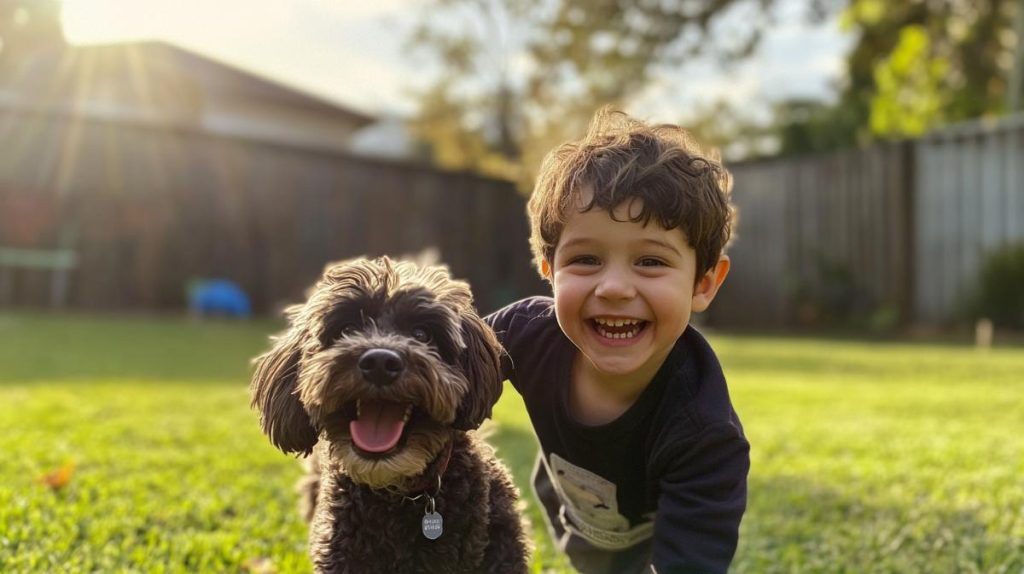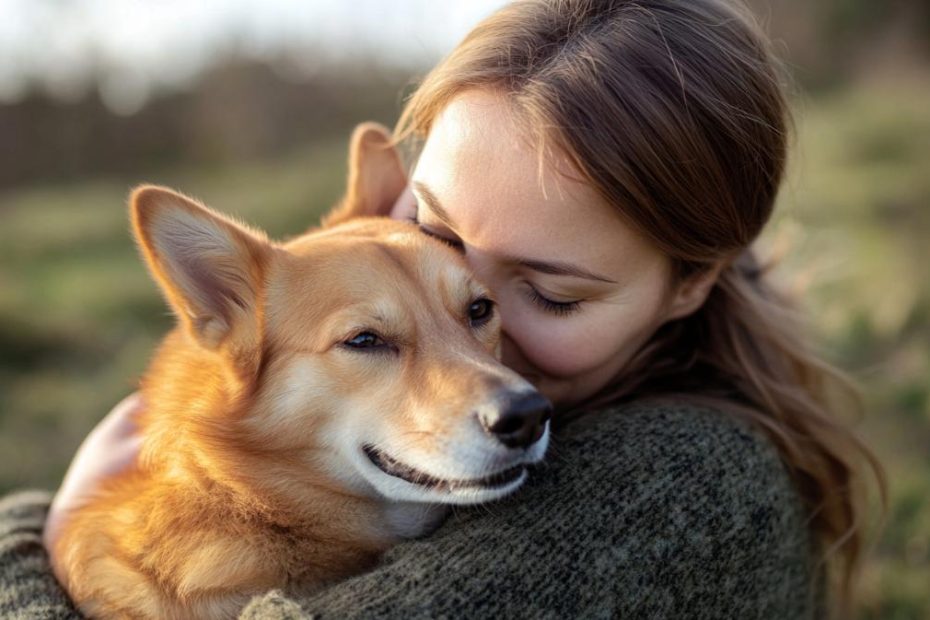Rescue pets hold a special place in our hearts. When you bring a furry friend home from a shelter, you’re not just getting a pet – you’re gaining a loyal companion.
The bond between rescue pets and their owners is often incredibly strong. Science shows that this human-animal bond can have powerful effects on both the pet’s and owner’s wellbeing.
Ever wonder why you feel so connected to your rescue pet? It’s not just your imagination. Your brain actually releases “feel-good” chemicals like oxytocin when you interact with your pet.
This is the same hormone involved in parent-child bonding. Pretty cool, right? Your rescue pet becomes part of your family in a very real, biological sense.
Bringing a rescue animal into your home can change both of your lives for the better. You provide a loving home, and in return, your new friend offers unconditional love and support.
It’s a win-win situation that creates a unique and lasting bond.
Key Takeaways
- The human-animal bond triggers the release of bonding hormones in both pets and owners
- Rescue pets often form especially strong attachments to their new families
- Adopting an animal can improve wellbeing for both the pet and owner
The Emotional Chemistry of Bonding

When you adopt a rescue pet, a special connection forms. This bond goes beyond simple companionship, involving brain chemistry and emotional healing.
Let’s look at the science behind this unique relationship.
Oxytocin and the Healing Touch
Ever wonder why petting your furry friend feels so good? It’s all about oxytocin, the “cuddle hormone.”
When you stroke your pet, your brain releases this feel-good chemical. It’s the same hormone that helps mothers bond with their babies.
Oxytocin does more than just make you feel warm and fuzzy. It can:
- Lower your stress levels
- Boost your mood
- Improve your social connections
Studies show that gazing into your dog’s eyes can increase oxytocin levels in both of you. This creates a positive feedback loop, strengthening your bond over time.
Support Circles: Beyond Just Companionship
Your rescue pet isn’t just a cute face – they’re a furry therapist too! Pets can expand your social circle in surprising ways.
Here’s how your four-legged friend can boost your social life:
- Dog parks become your new hangout spot
- You chat with other pet owners during walks
- Pet-related events introduce you to like-minded people
This increased social interaction can help fight loneliness and depression. Your pet becomes a bridge to new friendships and support networks.
Research shows that pet owners often view their animals as family members. This emotional connection provides a sense of purpose and belonging.
Pet Ownership and Mental Health
Adopting a rescue pet can be a game-changer for your mental health. These furry friends offer unconditional love and support, which can work wonders for your psychological well-being.
Here are some ways your rescue pet can boost your mental health:
- They provide a comforting presence during tough times
- Caring for them gives you a sense of purpose
- Their antics can lift your mood and make you laugh
Studies suggest that pet ownership is linked to reduced symptoms of depression and anxiety.
The routine of caring for a pet can also help structure your day, which is especially beneficial if you’re struggling with mental health issues.
Remember, while pets can be great emotional support, they’re not a substitute for professional help if you’re dealing with serious mental health concerns.
Pets in Our Social Fabric

Pets play a big role in our society. They shape how we interact with others and even affect our laws and schools.
Let’s look at how these furry friends fit into our world.
More Than a Pet: Emotional Anchors in Tough Times
When life gets rough, your pet can be your rock. During hard times like domestic violence or homelessness, pets offer comfort. They don’t judge you or ask questions. They just love you.
Studies show that pets can help create friendships for their owners.
This is great for your health! Your dog might lead you to chat with other dog owners at the park. Your cat could be a conversation starter with your neighbors.
Pets can even help in disasters. When you’re stressed, petting your furry pal can calm you down. It’s like they have a sixth sense for when you need a cuddle!
Legal Paws: Animals and Human Law
Did you know your pet has legal rights? It’s true! Animal protection laws are getting stronger every year. These laws make sure your furry friends are treated well.
In some places, pets are even considered in custody battles. Yep, just like kids!
Courts recognize that pets are more than just property. They’re family members with emotional value.
There are also laws about where you can take your pet. Some restaurants now allow dogs on patios.
But health codes still keep them out of most indoor spaces. It’s all about finding a balance between pet love and public health.
Creating A Paw-sitive Educational Environment
Pets are making their way into schools too! Some classrooms have class pets to teach kids about responsibility. It’s not just fun – it’s educational!
Reading to dogs can help shy kids boost their confidence. Some libraries have “read to a dog” programs. The dogs don’t judge, so kids feel more relaxed.
Therapy animals visit schools to help with stress. During exam time, universities often bring in dogs for students to pet. It’s a great way to take a break and relax.
Even in regular classes, pets can be part of the lesson. Biology, ethics, and even math can use pet-related examples. Who knew Fido could help you learn fractions?
